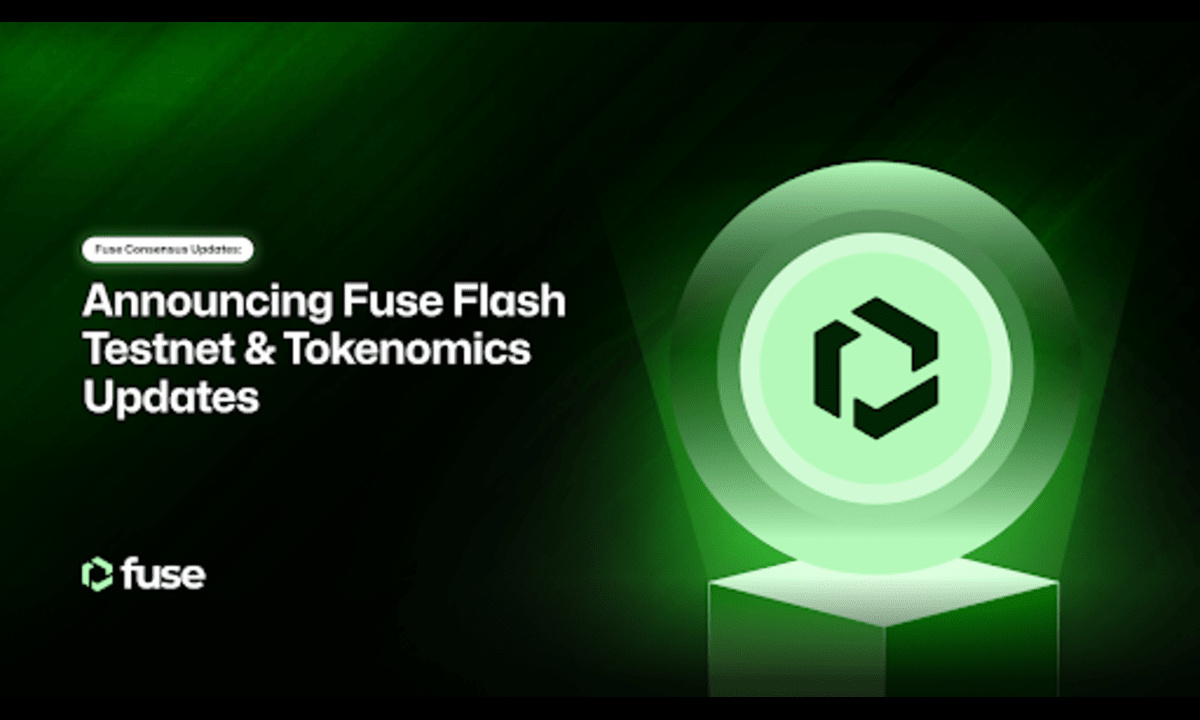
Announcing new Fuse Flash Testnet and Token Model Changes
Tel Aviv, Israel, July 29th, 2024, Chainwire
We are thrilled to announce the release of the Consensus Contract on the Flash Testnet network has been successfully completed and is now available to Fuse users. This milestone is a significant leap forward in our mission to enhance the network’s capabilities, stability and decentralization. As we transition from testnet to mainnet, we introduce several key updates, including a new maximum stake requirement for validators, adopting a deflationary token model and the integration of Polygon’s Chain Development Kit (CDK). Here’s everything you need to know:
Launching a zkEVM Layer 2 Network using the Polygon CDK
We are also transitioning to a ZK-Powered Layer 2 Using Polygon CDK to enhance our network’s scalability, security, and interoperability. As we progress towards a zkEVM architecture, we are expediting the mainnet launch to Q4 2024, aligning with our broader strategy for Fuse to become a modular blockchain. This approach supports new financial models and business use cases in Web3.
Key improvements and features with the transition include:
- Deployment of a ZK Layer-2 network leveraging Polygon CDK to create an Ethereum-based Zero Knowledge (ZK) network, which will become our native network post-launch.
- Enhanced scalability, customization, privacy, and Web3 support, with FUSE serving as the gas fee token.
- Phased testnet adjustments including ZK rollup deployment, L1 <> L2 integration, and migration to ZK Validium.
- Improved user experiences with increased transactions per second (TPS) throughput and decentralized validation.
- Strategic partnerships driving blockchain adoption for businesses and shaping the future of finance.
The Fuse Flash Testnet’s implementation of Polygon CDK is the first step of the deployment of the new zkVM-powered network. Once key infrastructure providers are updated to support the L2 design, developers can test their end-user dApps on the updated network without a new fork, preserving chain data and state. To meet the accelerated timeline for deployment, we will soon announce changes to the testnet phases across our social media channels.
Upgrade to the Consensus Mechanism
The change to Fuse Network’s consensus mechanism will see us cap the maximum supply of FUSE tokens, adopting a deflationary token model and introducing a new maximum stake requirement for validators. This strategy will have a positive impact on the token’s desirability and long-term value for its community members while underpinning the improvements and changes needed to underpin the migration to an L2. Fuse Network requires a stable medium of exchange to meet the evolving needs of businesses and consumers accessing finance in web3. A deflationary model will satisfy these requirements without the need for further issuance of supply while stabilizing the price of FUSE to provide value to all stakeholders in the Fuse ecosystem.
Increasing the maximum stake amount for validators will decrease the number of nodes on Fuse Network. In addition to making the validation process simpler for validators who can now run fewer nodes for validation, the increased stake gives community members more options for staking, including with validators who have previously reached their limits. We anticipate this to enhance inclusion and participation on the Fuse blockchain.
Migration from Open Ethereum to Nethermind
Fuse is upgrading from Open Ethereum to Nethermind to enhance the network’s performance, improve security, and stabilize transaction fees. This update is essential for maintaining network integrity and performance and will impact Fuse Network across several verticals, contributing to:
- Stability and Efficiency: The migration to Nethermind will stabilize gas fees, reducing volatility and ensuring lower transaction costs.
- Enhanced Security: Nethermind introduces critical new Ethereum Improvement Proposals (EIPs) to protect against potential vulnerabilities and create a more secure environment.
We are laying the groundwork for a more efficient and user-friendly financial ecosystem by improving stability, security, and infrastructure. This update is a significant step towards achieving our vision of a decentralized, accessible, and robust financial ecosystem.
What Comes Next
These updates mark a pivotal moment in our journey to enhance the capacity, structure and reliability of Fuse Network. By increasing the maximum stake amount, integrating Polygon’s CDK, and capping the token supply, we are enhancing Fuse Network’s scalability, security, and economic stability. We thank the Fuse community for your continued support and look forward to provide a strong foundation for the growth of the Fuse ecosystem.
Stay tuned for more updates, and as always, we welcome your feedback and engagement.
Feel free to reach out to us with any questions or comments. Together, we are building a stronger, more secure, and more efficient Fuse network.
